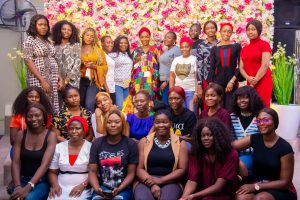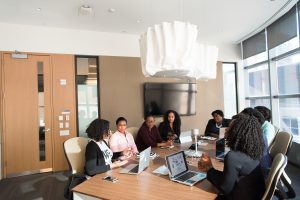Human rights, the bedrock of a just and equitable society, are fundamental entitlements inherent to all individuals, regardless of their background, beliefs, or circumstances. In an increasingly interconnected and complex world, the role of non-governmental organizations (NGOs) in promoting, protecting, and advocating for human rights has become indispensable. This article delves into the significance of human rights, explores the multifaceted role of NGOs in advancing these rights, and provides a comprehensive analysis of their impact on global society.
Human rights, the bedrock of a just and equitable society, are fundamental entitlements inherent to all individuals, regardless of their background, beliefs, or circumstances. In an increasingly interconnected and complex world, the role of non-governmental organizations (NGOs) in promoting, protecting, and advocating for human rights has become indispensable. This article delves into the significance of human rights, explores the multifaceted role of NGOs in advancing these rights, and provides a comprehensive analysis of their impact on global society.
Understanding Human Rights
Imagine a world where everyone is treated with respect, where freedoms are safeguarded, and discrimination is a relic of the past. That world is the vision of human rights – a universal blueprint for creating a better tomorrow. From the right to life and liberty to freedom of expression and education, these rights form the backbone of an equitable society. The Universal Declaration of Human Rights (UDHR) sets the stage for this grand quest, lighting the path towards a world where every individual’s dignity is celebrated and cherished.
Types Of Human Rights NGOs
Human rights NGOs are diverse organizations dedicated to promoting and protecting human rights globally. They come in various types, each with a specific focus and approach. Advocacy and Research NGOs conduct research and raise awareness about human rights issues, advocating for policy changes and legal reforms. Service Delivery NGOs work directly with vulnerable communities, providing essential services like healthcare and legal aid to uphold human rights. Legal Aid and Human Rights Litigation NGOs offer legal assistance to victims of abuses, helping them seek justice through the legal system. Grassroots and Community-Based NGOs operate at the local level, addressing human rights challenges tailored to specific communities.
International and Regional NGOs have a global or regional focus, collaborating with governments and other entities to address human rights concerns across borders. Humanitarian and Relief NGOs provide emergency assistance during crises while upholding human rights in conflict-affected areas. Anti-Discrimination and Minority Rights NGOs combat discrimination and promote the rights of marginalized groups like women, LGBTQ+ individuals, refugees, and minorities. Environmental and Indigenous Rights NGOs focus on protecting the environment and the rights of indigenous peoples disproportionately affected by environmental degradation. Children’s Rights NGOs safeguard children’s well-being, addressing issues like child labour and trafficking.
Prisoners’ Rights NGOs work to improve prison conditions and ensure fair legal proceedings for incarcerated individuals. The diversity of human rights NGOs allows for a comprehensive approach to tackling various challenges worldwide. These organizations often collaborate and other stakeholders to create a significant impact and promote a world where human rights are respected, protected, and fulfilled for all. Through their collective efforts, human rights NGOs strive to hold perpetrators accountable, empower communities, and advocate for a just and equitable society.
Role of NGOs in Promoting Human Rights
NGOs, as independent and often grassroots organizations, play a pivotal role in upholding and promoting human rights. Their unique position allows them to address gaps in government policies, offer support to marginalized communities, and hold state and non-state actors accountable for violations. Here are some key ways in which NGOs contribute to the advancement of human rights:
- Advocacy and Awareness
NGOs play a pivotal role in raising awareness about human rights issues on both local and international platforms. They leverage media, social networks, and public campaigns to shed light on abuses and injustices. For instance, Amnesty International, one of the world’s largest human rights NGOs, has been actively advocating for individuals who are unlawfully detained or imprisoned. Through its campaigns, such as “Write for Rights,” Amnesty International encourages people worldwide to take action by sending letters of support to those suffering from human rights violations, amplifying their stories and putting pressure on governments to take action. - Monitoring and Documentation
NGOs actively monitor human rights situations in various regions, documenting violations, and producing comprehensive reports. Human Rights Watch is renowned for its extensive documentation of human rights abuses around the world. In its reports, it provides detailed accounts of violations, including testimonies from victims and witnesses, supporting its findings with evidence. Such reports serve as powerful tools to hold perpetrators accountable and agitate for their punishment. - Legal Assistance and Support
NGOs like the International Commission of Jurists (ICJ) provide legal aid and support to individuals and communities facing human rights violations. For instance, in cases of discrimination or marginalization of indigenous communities, the ICJ offers legal representation to ensure access to justice. They advocate for the recognition of land rights, protection from forced displacement, and preservation of cultural heritage. - Capacity Building and Empowerment
NGOs work to empower local communities and activists by providing training and resources. Two examples are the Malala Fund, founded by Nobel laureate Malala Yousafzai, which focuses on girls’ education and women’s rights. The organization not only supports access to education but also empowers young girls to become advocates for their rights, amplifying their voices and driving positive change in their communities. And the Royal Ikwere Foundation (RIF) RIF, an African non-profit organisation founded in 2023, aims to assist the Warri Kingdom by effectively tackling obstacles and vulnerabilities that could hinder the state’s continuous development and its capacity to compete internationally. - Promotion of Social and Economic Rights
NGOs like Oxfam focus on promoting social and economic rights by advocating for poverty alleviation, access to education, and equitable distribution of resources. For instance, Oxfam campaigns for fairer economic policies that address wealth inequality and support marginalized communities.
These real-life examples demonstrate the critical role NGOs play in promoting and protecting human rights across various contexts. Their efforts in advocacy, awareness-raising, documentation, legal support, capacity building, and humanitarian assistance contribute significantly to advancing human rights and building a more just and equitable world.
The role of NGOs in promoting and safeguarding human rights is not only vital but essential to the progress of global society. As guardians of dignity, NGOs bridge gaps in governance and hold authorities accountable, ensuring that the lofty ideals of human rights translate into meaningful change for individuals and communities around the world. Their advocacy, awareness campaigns, and grassroots initiatives serve as a beacon of hope, guiding humanity towards a future where human rights are truly universal and respected by all.
For more insights on how NGOs help preserve the rights of humans in the world and donations to the cause, reach out to us at contact@rif.ng or call +2348154105285.




